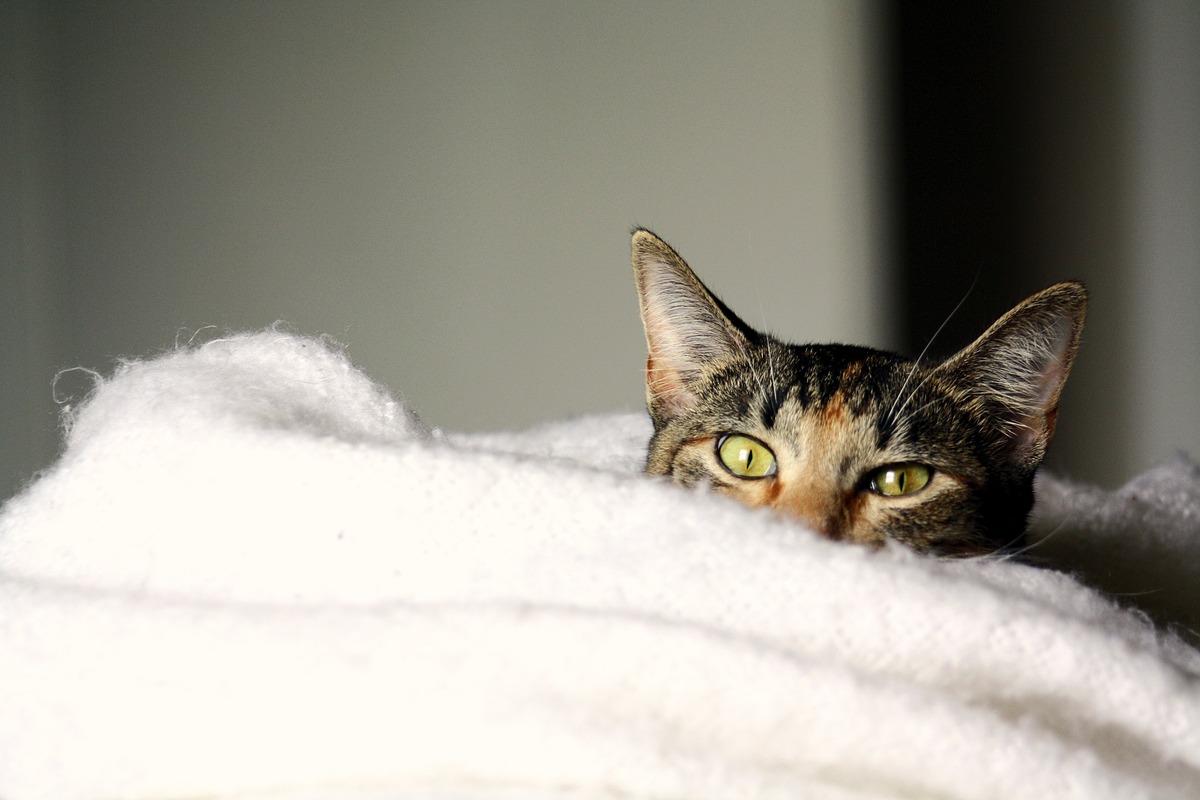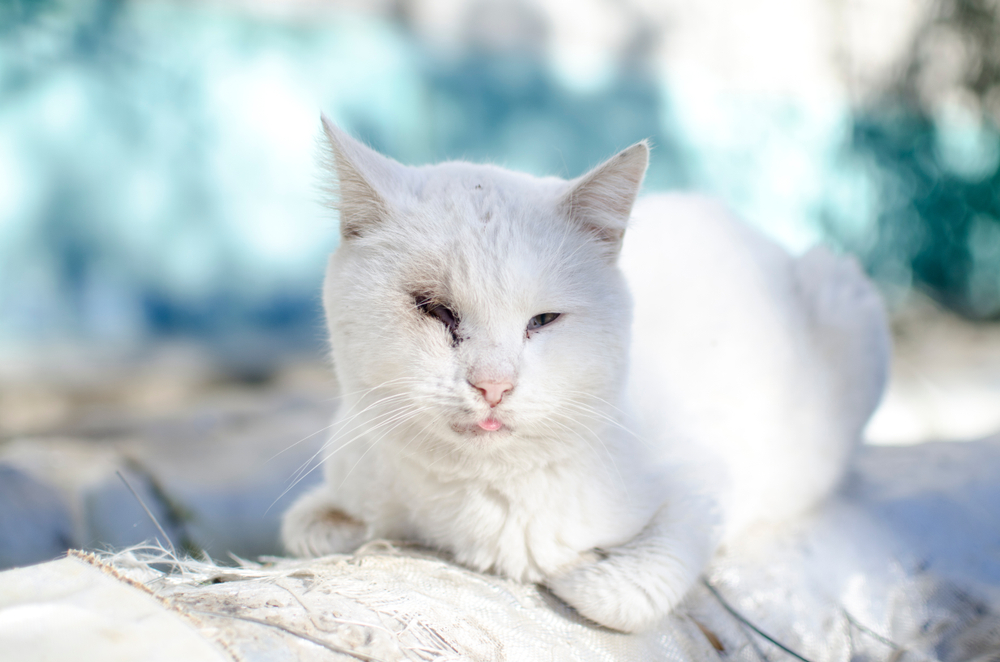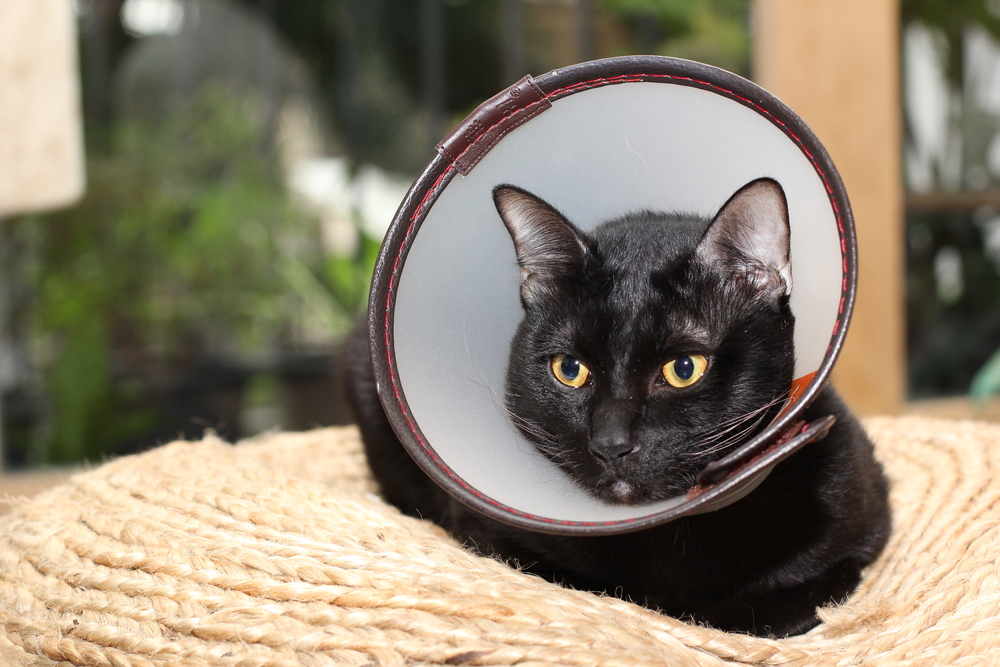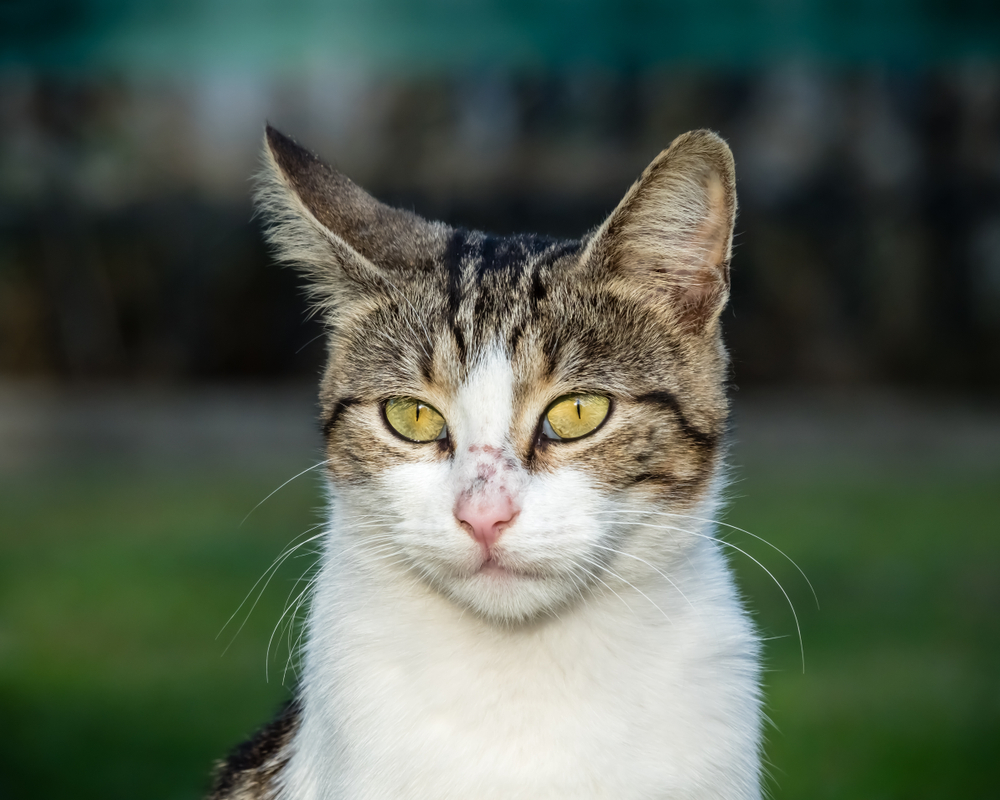📖 Table of Content:
We’ve all been there – catching a glimpse of our four-legged friend scratching, biting, or licking a particular spot and rushing to examine the entire area to figure out what’s wrong. Cats are known to shake things off pretty easily, but cat scabs can be stubborn. What are the home remedies for cat scabs?
Scabs and sores on your cat’s skin can be concerning, but you need to remember that not all of them are a reason to rush to the emergency center. We do agree that you’re almost always better off getting your cat checked by a vet, but you’d be surprised at how efficient and effective home remedies can be, too.
More often than not, cat scabs and sores are not urgent and can be treated at home – but you should always consult the vet first. When your cat gets checked out by the vet, you can get a green light for possible at-home treatments. With that out of the way, why does your cat develop scabs, anyway?
Scabs and sores can appear on your cat’s body for a million reasons, from ringworm to mange. But that’s typically the case with cats that spend most of their time outdoors. Before you start wondering whether your couch potato goes outside when you’re not looking, scabs can be caused by an allergy, too.
What are cat scabs? What are the common causes of cat scabs? What home remedies for cat scabs are guaranteed to make the poor creature get better quicker? All that and more down below!
What are cat scabs?
When you Google search “what are the scabs on my cat’s body,” you’re probably going to get an answer telling you that they’re protective layers that form over wounds or sores to help them heal. While that’s a solid answer, you might be wondering why they’re there.
Whether your cat fought with another cat, contracted some sort of skin disease, or suffered an allergic reaction, there’s a chance she might have a scab or two on her fur. Scabs can appear anywhere on the body but are most commonly found on the back, neck, and base of the tail.
We’ve mentioned beforehand that there are different types of scabs, but there’s a high probability that your cat might be suffering from a condition called miliary dermatitis. Miliary dermatitis can cause scabs as a consequence of an allergic reaction that forms hard skin and an itchy rash.
While scabs themselves are not a disease, they’re often a symptom of an underlying medical problem that needs to be addressed. We suggest contacting your vet before resorting to any at-home treatments. When you figure out the cause of the scab, you can figure out how to treat the affected area, too.
What are the common causes of cat scabs?
Scabs on a cat’s skin can be caused by a myriad of factors, ranging from external irritants to internal health conditions. When you notice scabs on your cat’s skin, you might want to check for fleas and parasites because they’re the most common cause of cat scabs.
Fleas and other external parasites can cause itching and irritation, leading to scratching and scab formation. Furthermore, scabs can be caused by mites, ringworms, allergies, and wounds from fights or accidents.
We can’t forget about bacterial or fungal infections, immune system disorders, and certain types of cancer which can all be the trigger for scratching and scab formation. Stress and anxiety can be challenging for a cat to deal with and can lead to excessive scratching or grooming, as well as sores and scabs.
Schedule an appointment with your vet the moment that you notice your cat sporting strange scabs and go from there. Remember – you’re not supposed to pick scabs off cats because you’re probably going to cause further irritation, pain, and potential infection for your cat. Address the root of the problem.
With that out of the way, check out our top 9 home remedies for cat scabs guaranteed to work.
9 home remedies for cat scabs guaranteed to work
1. A warm towel wrap
Sometimes the simplest solutions are the best. When you notice your feline friend struggling with a sore or a scab, prepare a warm towel wrap for her. A warm towel will reduce any itching and irritation that she’s feeling, soften the scabs, and soothe her skin. At the end of the day, that’s what matters.
Soak a clean towel in warm water and wring it out so that it is damp, not dripping. Wrap the affected area in the towel for as long as your cat will allow you to do that and you’re good to go.
2. Calendula oil
Calendula oil comes with anti-inflammatory and antiseptic properties which promise to take care of your cat’s scabs. Whether you opt for pure calendula oil, a calendula lotion, or even a calendula tea, you’re guaranteed to notice a world of difference. Or, when you’re feeling a little extra, do all three steps.
Start by cooling down a cup of calendula tea and using a washcloth or wrap the affected area and allow it to soak up all the goodness. Pat the area dry before you proceed to apply a tiny amount of calendula oil, followed by a similar amount of calendula lotion.
3. Coconut oil
With anti-inflammatory and antiseptic properties, coconut oil works wonders when applied topically. Coconut oil can hydrate, nourish, and condition your cat’s skin and coat, which explains why the same oil can help alleviate some of the pain and pressure of a cat scab.
After you’re done bathing and grooming your precious purrincess, you can proceed to apply a thin layer of virgin and organic coconut oil over the scabs. You can also add some coconut oil to your cat’s diet to nourish her body, skin, and coat from the inside, too.
4. Fish oil
When you’re on the hunt for the best home remedies for cat scabs, don’t forget about fish oil. Calendula oil and coconut oil might be a little more popular and prominent among pet parents, but we can assure you that cats adore fish oil, too.
Rich in omega-3 fatty acids and possessing anti-inflammatory properties, fish oil promises to soothe your cat’s skin. Administering fish oil can be done in liquid or capsule form, but we suggest repeating the same process we mentioned beforehand.
5. Oatmeal
Oatmeal might be one of the best remedies for cat scabs, and here’s why. When you take a look at what cat shampoos and conditioners are made of, you might notice an overwhelming number of oatmeal-based cosmetics for cats available on the market.
Make a fancy spa treatment for your feline by finely grinding dry oatmeal and adding it to warm water. Allow your cat to play with the water before you submerge and massage the affected areas. A five-minute bath every now and then might just be the thing your cat needs to be happy and healthy.
6. Aloe vera
We do need to start by saying that aloe vera can be slightly toxic to cats when ingested and we don’t recommend applying aloe vera on a cat that can’t stop licking her scabs.
With that out of the way, though, aloe vera possesses antioxidant, antimicrobial, anti-inflammatory, and pain-reducing properties. When you notice your little one struggling with itchy scabs and sores, you might want to apply a tiny amount of aloe vera on them and cover them with a clean cloth.
By doing that, you can prevent your cat from licking the aloe vera from the scab, as well as ensure that the aloe vera works before you wipe it away.
7. Bath salt
Cats and baths might not be the purrfect match, but your cat might be able to understand why you’re doing what you’re doing. Bathing a cat that’s suffering from scabs and sores might be the best way to get rid of them – or soothe them enough to stop them from spreading.
Bath salts are a great addition to every bath, but they’re especially great for getting rid of scabs because they’re made to soothe irritated and itchy skin. With a little bit of warm water and some bath salts, you might be able to bring down the swelling and make your feline friend feel a lot better.
8. Apple cider vinegar
We suggest turning to apple cider vinegar when you’re 100% sure you’re dealing with scabs caused by fleas, ticks, and parasites. Apple cider vinegar can help you remove them from your cat’s body and enable you to tend to your cat’s wounds. Use a 2:1 ratio with water and spray your cat’s coat.
Make sure you spray everywhere, but focus on and around the affected area because that’s where most of them probably are. Wait for the fleas, ticks, and parasites to leap off your cat’s body before you address the scabs.
9. Lemon
When life gives you lemons, use them to get rid of your cat’s scabs and sores. Lemons contain citric acid which can treat cat scabs naturally. We do need to underline the same disclaimer we gave for aloe vera because lemons are toxic to cats, too.
Lemons contain essential oils limonene and linalool, as well as chemicals called psoralens, all of which are toxic to cats. When you spray your cat with a lemon and water spray, make sure you keep a close eye on her to ensure she doesn’t lick the spray off her skin.





